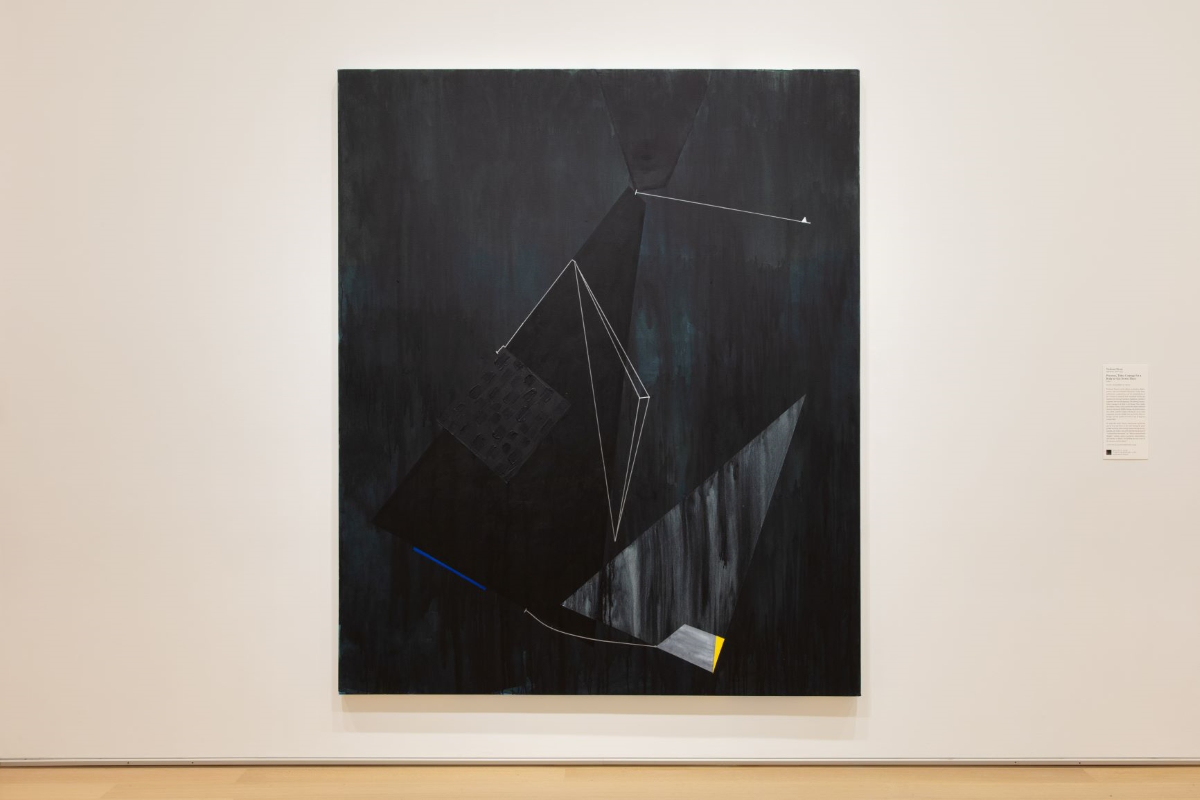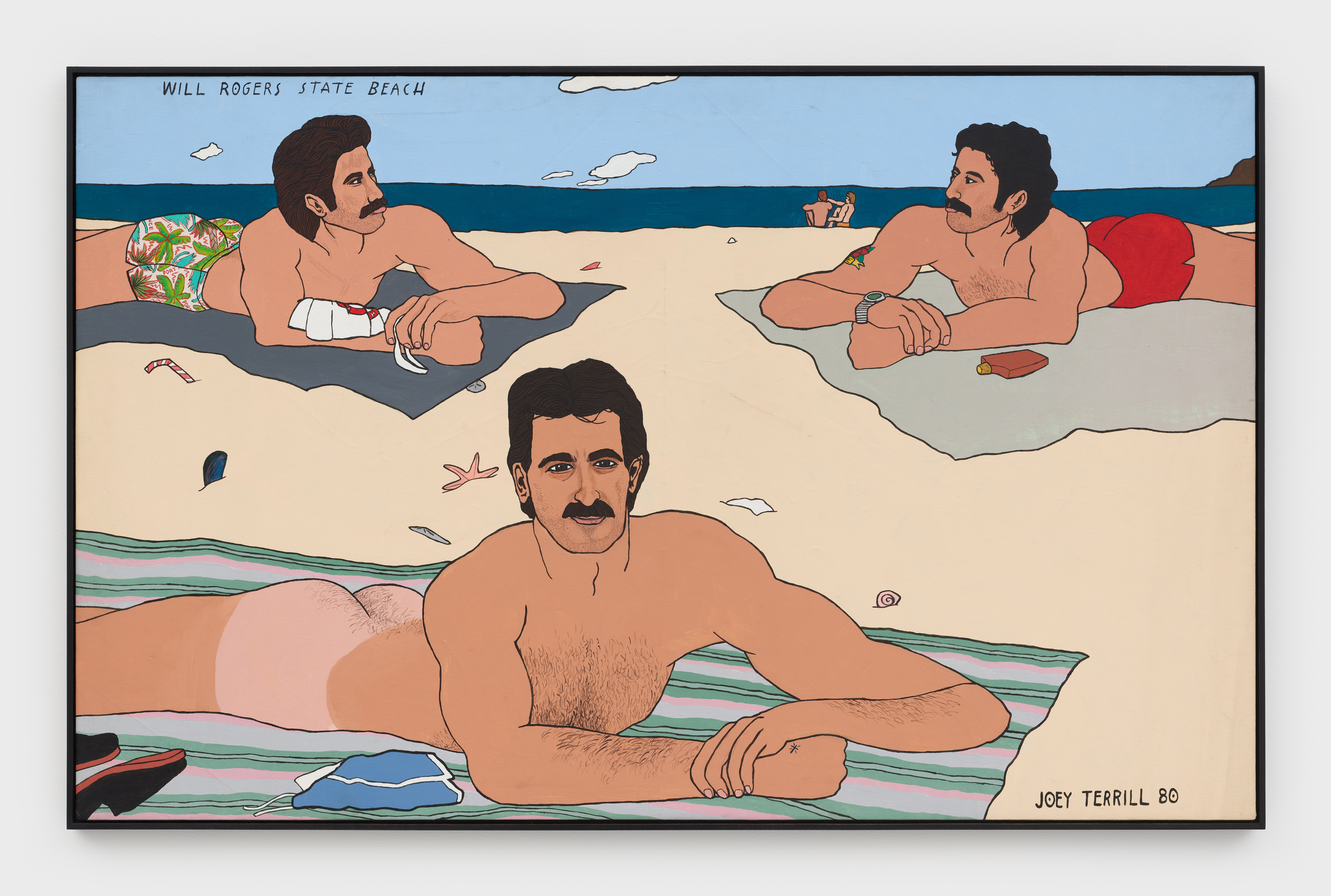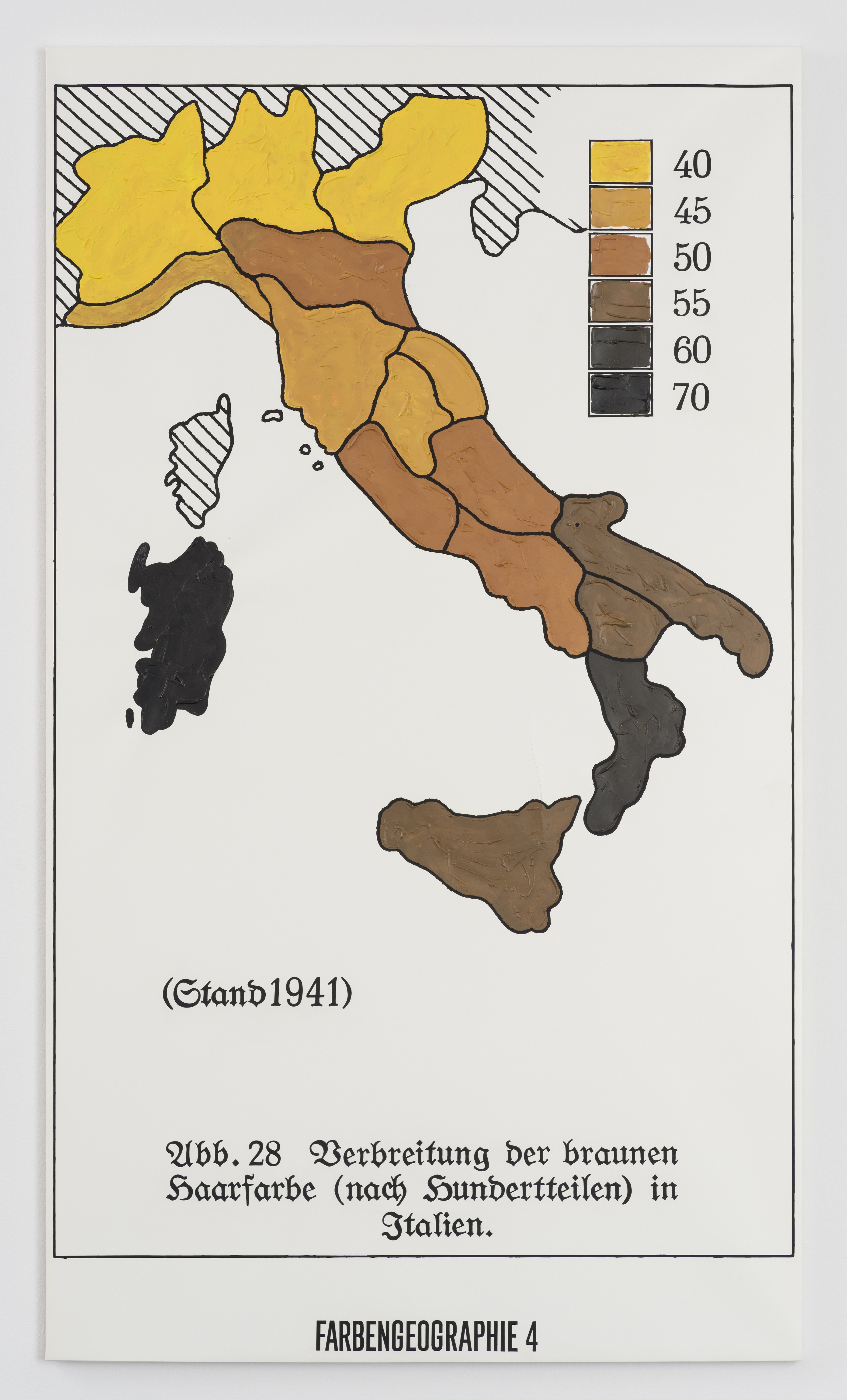
Will Rogers State Beach,
1980

A second-generation Los Angeles native, Joey Terrill has critiqued Chicanismo and explored its cultural relationship to homosexuality over a four decade career. Engaged in the nascent Chicano Power and Gay Liberation movements since the early 1970s, Terrill was exposed to diverse, overlapping scenes from a young age, ranging from ASCO’s guerrilla performances to Luis Valdez’s political El Teatro Campesino, correspondence with Ray Johnson to creative exchanges with David Hockney. Terrill’s early work captures intimacies between friends and lovers at the start of the AIDS crisis, in episodic, droll, and confessional images that expand barrio culture’s heternormative notion of La Familia through the distinctive development of queer iconography.
More Acquisitions
-
![Large painting with geometric shapes in varied dark hues of wp:meta_valuek animagealtd white, blue, and yellow shapes and lines hangs on a white wall.]() Torkwase Dyson, 2021
Torkwase Dyson, 2021 -
![Farbengeographie Color geography Nr 4 1972]()
Color Geography No. 4 (Farbengeographie Nr. 4), 1972, 1972
K.P. Brehmer, 2024
